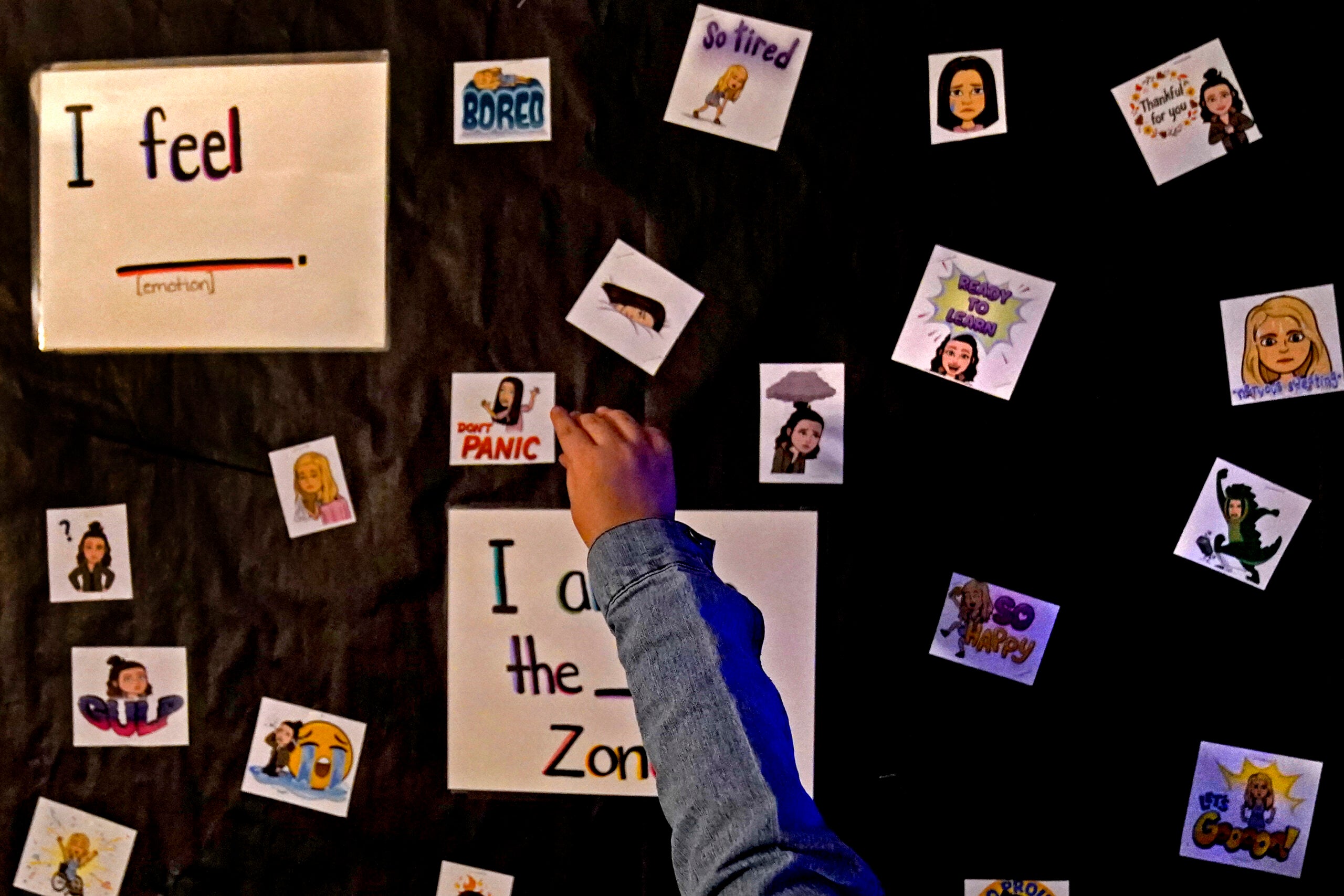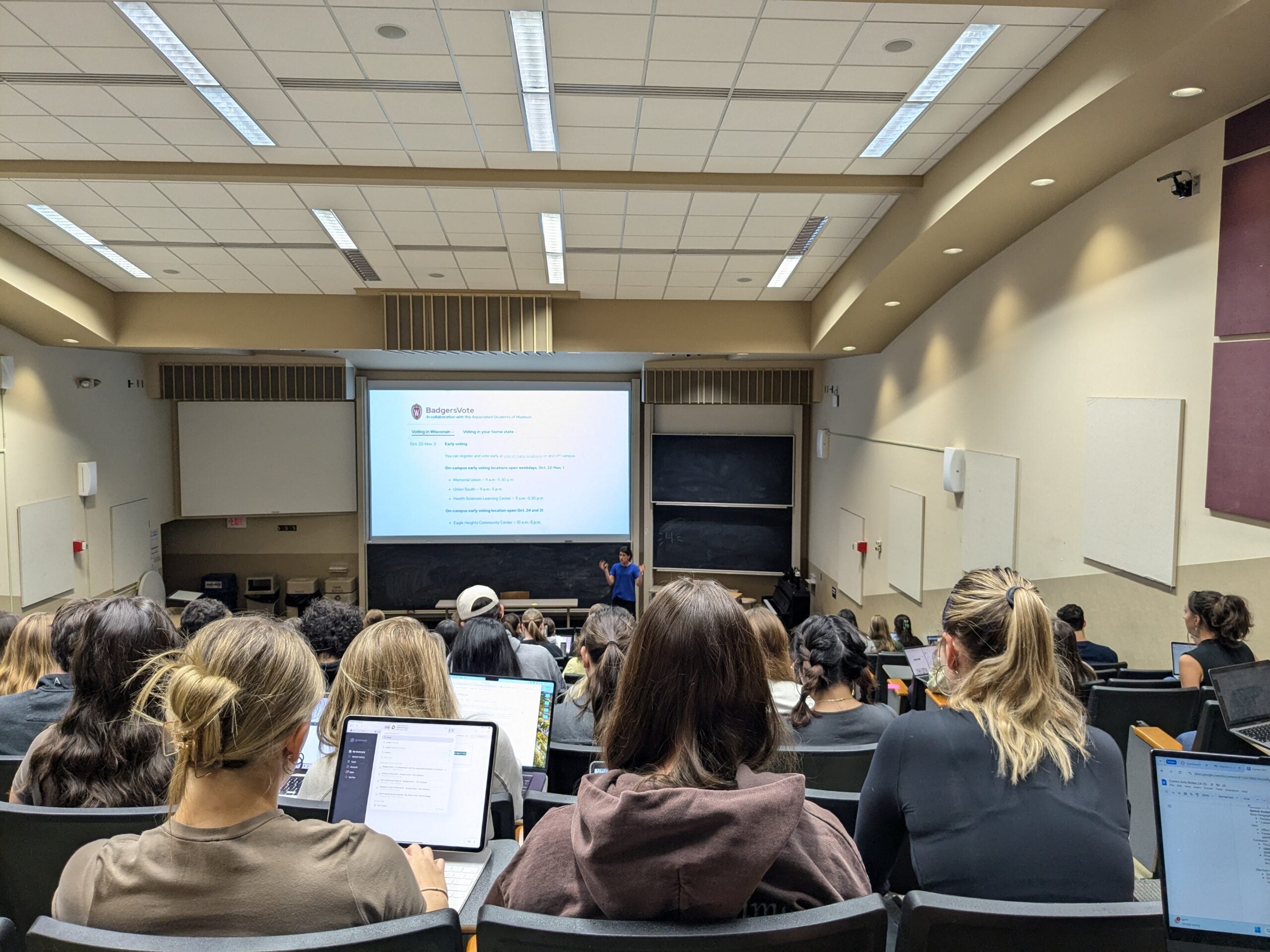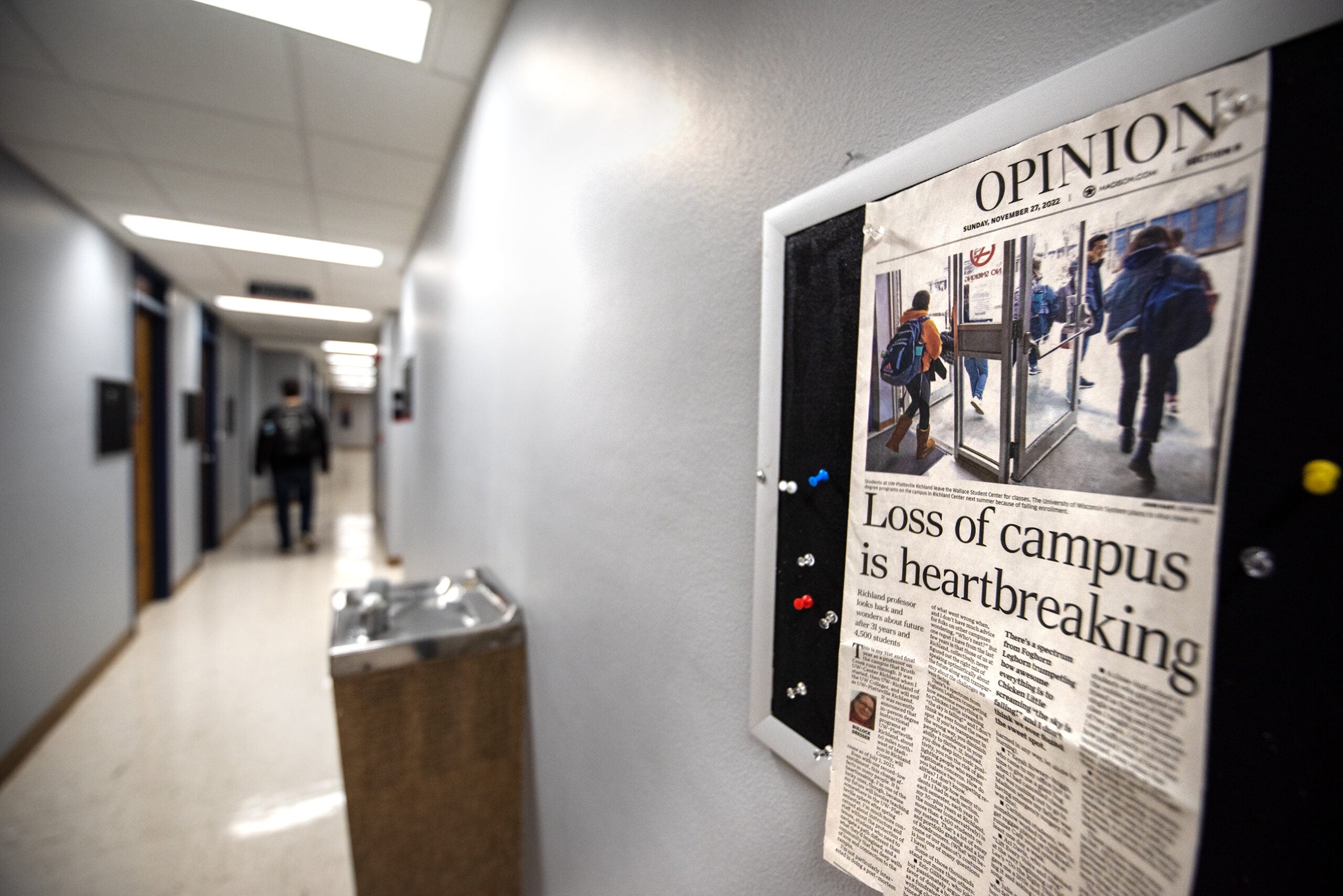Whether as creators, characters, or consumers, people of color are often missing in the genres of science fiction and fantasy. We look at why, and how that might change. Then, a commentator explores how former Wisconsin Governor Tommy Thompson might have dealt with the current conflict between the UW system and the state legislature. Plus, we talk to a political scientist about Republican presidential candidate Donald Trump’s controversial comments about gold star families.
Featured in this Show
-
Race And Science Fiction
Speculative fiction has never been hotter in popular culture. Genres like fantasy and science fiction, once considered on the fringe of culture, are now all over television and the big screen. There’s a new Star Trek movie in theaters, and the hottest show on television is easily Game of Thrones. But according to one author, these genres have long struggled with the issue of race – both in regards to the lack of black characters in stories, as well as the lack of black content creators. He digs deeper into some of the reasons behind these issues, what it means to be a black fan of speculative fiction, and where the genre might be heading in the future.
-
Bridging The Gap Between The UW System And State Lawmakers
A gap has been growing between the UW system and state lawmakers in recent years; punctuated by a battle over tenure, suggested changes to the Wisconsin Idea and heated arguments between faculty and elected officials. Our guest says things haven’t always been this way, and talks about what a former Governor would do to bridge the gap.
-
In recent years, conversations between the University of Wisconsin System and the state Legislature have been contentious, with officials from both sides butting heads over issues like funding cuts and challenges to tenure.
But the relationship between the UW System and state lawmakers wasn’t always as strained as it seems today. In fact, the two entities were highly collaborative and united behind the Wisconsin Idea.
Marc Eisen, a freelance writer and former editor of the Isthmus, recently wrote two pieces about the the relationship between former Republican Gov. Tommy Thompson and the UW System.
“In retrospect, there’s a lot of people on the UW-Madison campus who see the Thompson era almost as the golden era,” he said.
During Thompson’s 14 years as governor, the UW System and the governor’s administration weren’t at odds, Eisen said. In fact, Thompson saw the state’s public universities as a crucial part of the state’s fiscal health.
“Thompson was almost a Hamiltonian-style Republican,” Eisen said. “He wanted to do things and he wanted to implement conservative policies. He was not anti-government. He saw government as being a means of doing positive things for the state. And he saw the university as being the mechanism to really drive the Wisconsin economy. And he thought the best way to get the Wisconsin economy involved in this was to be its best friend.”
Eisen points to the unlikely partnership between Thompson and former UW-Madison Chancellor Donna Shalala, a Democrat. They were united behind the common goal of expanding UW-Madison and worked well together to achieve the goal, he said.
However, subsequent administrations, including those of Govs. Jim Doyle and Scott Walker, haven’t necessarily had the same rosy relationship that the UW System had with Thompson, according to Eisen. Thompson had a habit of including academics from the UW System when he wanted to implement new governmental policies, the best-known collaboration being the Kettl commission, headed by former UW-Madison Professor Don Kettl.
While Thompson is no longer in office, he’s still keen on growing the state, said Eisen, who spoke with Thompson for the articles.
“One of the things about Thompson — which again in retrospect was so good — was that he was so upbeat and optimistic, and he wanted to pull people in,” Eisen said. “But, he’s concerned about the Wisconsin economy and he felt if he were still in power, the one thing he did not do as governor was work on building an economic development corridor between Milwaukee and Madison.”
Thompson still holds the hope that the colleges and the tech schools can be bolstered to be an economic engine for the state, Eisen said.
-
How GOP Presidential Candidate Donald Trump's Comments About The Parents Of A Muslim-American Soldier Killed In Battle Could Affect His Campaign
Republican presidential nominee Donald Trump has sparked a controversy with his comments about the Muslim Americans who spoke at the Democratic National Convention. Some pundits say this controversy could do more damage to his campaign than other controversial statements he’s made in the past. We talk to a political scientist about how these comments might affect Trump’s campaign.
-
Trump's Response To Khan Family Might Be Aimed At Raising Voter Anxiety, Journalism Professor Says
A University of Wisconsin-Madison journalism professor says Republican presidential candidatae Donald Trump’s controversial responses to a Muslim-American military family might be an intentional attempt to exploit their ethnicity to win over voters.
On the final night of last week’s Democratic National Convention, Khizr Khan, joined on stage by his wife, Ghazala, talked about their son, Humayun Khan, a U.S. Army captain who died in Iraq in 2004. Khizr Khan criticized the GOP nominee for demonizing Muslims here at home and around the world.
“Have you ever been to Arlington Cemetery? Go look at the graves of brave patriots who died defending the United States of America,” Khan said. “You’ll see all faiths, genders and ethnicities. You have sacrificed nothing and no one.”
Trump responded in a series of interviews and on Twitter, saying he’s made sacrifices for the country through his hard work and job creation. Trump also said the country is under attack by radical Islam. In an interview with ABC, Trump speculated about why Ghazala left all the talking to her husband.
“His wife, if you look at his wife, she was standing there, she had nothing to say,” Trump said. “She probably, maybe she wasn’t allow(ed) to have anything to say. You tell me, but plenty of people have written that.”
Trump’s response to the Khan family has been met with sharp criticism from inside and outside the Republican Party and from some military families who have called on the GOP nominee to apologize — a futile request so far.
Trump’s comments are just the latest example of how he speaks in “vague generalities and double downs any time he’s criticized,” said Mike Wagner, UW-Madison professor of journalism and mass communication. In this case, Wagner said the comments might have been made with a political calculation.
“I imagine the reason Donald Trump is doing that is to try to raise anxiety in the minds of voters and to hopefully, from his point of view, turn that anxiety into support for him,” Wagner said.
However, Wagner said Trump’s comments have actually allowed the Democrats to be perceived as the party that most values patriotism, public service and the sacrifice made by military families.
Wagner added that it’s pretty novel to have a presidential candidate say anything beyond positive things about a family who’s lost an American soldier in a war.
“That’s just not something that you see everyday,” Wagner said. “It’s a little surprising in normal politics to see this going on, I’m not sure it’s surprising in Donald Trump politics.”
Episode Credits
- Rob Ferrett Host
- Veronica Rueckert Host
- Chris Malina Producer
- Matt Oleson Producer
- Amanda Magnus Producer
- André Carrington Guest
- Marc Eisen Guest
- Mike Wagner Guest
Wisconsin Public Radio, © Copyright 2025, Board of Regents of the University of Wisconsin System and Wisconsin Educational Communications Board.




